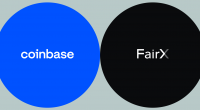Facebook is one of the biggest social media platforms out there, but its position as the king of social media has not come without a price. Whether it be the revelations from the whistleblower or the difficulties it faced in the UK over the acquisition of Giphy, Facebook did not have a smooth 2021 (even as it rebranded itself to Meta.) Now, Meta is under the scanner and is being sued for $3.2 billion in a class-action lawsuit.
The lawsuit was lodged against Meta with the U.K.’s Competition Appeal Tribunal in London, brought forward by legal expert Dr. Liza Lovdahl Gormsen. Gormsen is a competition law specialist at the British Institute of International and Comparative Law (BICL).
This is the first instance of an “opt-out” class action against Meta in England and Wales. Innsworth, one of the largest litigation funders in the world is financial backing for the case. Gormsen is being represented by law firm Quinn Emanuel Urquhart & Sullivan. Her lawyers have already written to Meta.
The lawsuit argues that Meta violated the 1998 Competition Act by setting an “unfair price” for Facebook’s UK users, who had to hand over personal data to access and be on Facebook. Since Facebook is the dominant social media platform in the UK, and users do not have other suitable alternatives, they have no choice but to surrender their personal and private data to Facebook if they want to establish a presence on the social media platform. This data is exploited for targeted ads, and advertisements make up nearly 98% of Meta’s income. So, you see, it is a rather lucrative arrangement for Meta.
If Meta loses the lawsuit, it will have to compensate the 44 million users in the UK for exploiting their data from October 1, 2015, to December 31, 2019.
“In the 17 years since it was created, Facebook became the sole social network in the UK where you could be sure to connect with friends and family in one place,” Gormsen said, adding that Facebook “abused its market dominance to impose unfair terms and conditions on ordinary Britons, giving it the power to exploit their data.”
It seems that the collection of user data-enabled Facebook to create vast data profiles on users. According to a Meta spokesperson, people accessed its service for free and chose them because it delivered “value for them and they have meaningful control of what information they share on Meta’s platforms and who with. We have invested heavily to create tools that allow them to do so.”





